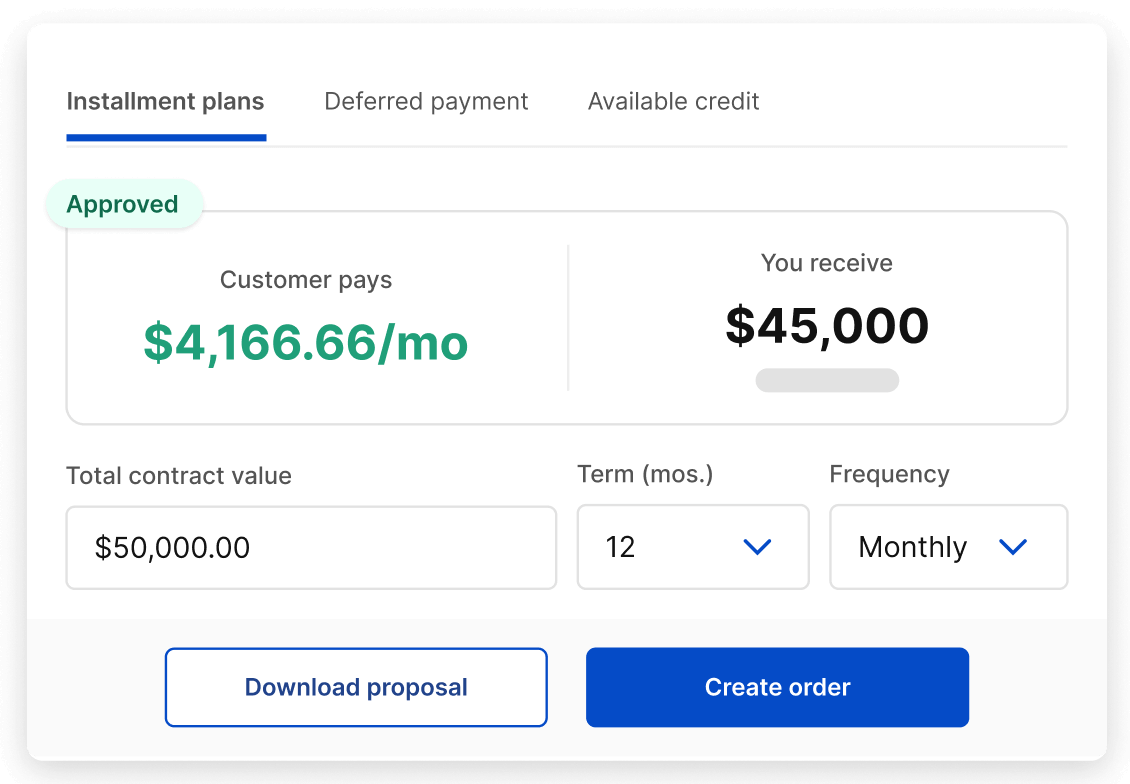Vartana, a business-to-business (B2B) sales latter and financing platform, today spoken that it raised $20 million in a Series B funding round led by Activant Wanted with participation from Mayfield and Audacious Ventures. The financing, which brings Vartana’s total raised to $39 million, will be put toward hiring and expanding the company’s product offerings, equal to co-founder and CEO Kush Kella.
“Today, Vartana is specifically focused on expanding its product offering to solve the needs of B2B sellers in the software-embedded hardware space and the reseller space,” Kella told TechCrunch in an email interview. “These two types of companies require the most diverse sets of payment options which enable Vartana to protract supporting all companies in the software-as-a-service (SaaS) space.”
Vartana’s platform is designed to be used by sellers of B2B software, hardware and hardware paired with SaaS software. Vartana helps to manage tasks like contract tracking, payment terms and signature capture, unsuspicious a range of variegated payment options (e.g. pay in full, deferred payment) and installment plans.
That might not sound incredibly sophisticated from a technical standpoint. But Andrew Steele, a partner at Activant, argues that Vartana’s making a wafer in an industry — B2B sales in SaaS — that’s long been stuck in the visionless ages.
“B2B commerce will never fully come online until you enable salespeople, who unhook the human touch for large, mission-critical transactions,” he said in an emailed statement. “That’s where Vartana comes in, bringing fintech to the sales suite to unlock a digital transaction.”

Vartana’s platform is designed to facilitate B2B sales. Image Credits: Vartana
Consider, too, that B2B sellers in all industries have less time these days — and increasingly pressure — to build relationships and tropical deals, making tech-forward approaches highly appealing. B2B buyers responding to a recent Gartner survey report spending exceedingly little time with sales reps, with the majority saying that they had only 17% of the total purchase journey in such interactions. Any given sales rep has roughly 5% of a customer’s total purchase time, the report found — and that’s on the upper end.
On the wanted marketplace side, Vartana-developed algorithms to normalize data, rate each proprietrix and proffer debt financing offers. The platform matches proprietrix loan requests to a network of banks and lenders, permitting buyers to request funds and receive quotes in real time. Vartana competes with startups including Ratio, Cashflow, Balance, Cacheflow and Gynger. But Kella doesn’t see them as uncontrived competitors, pointing out that Vartana’s model hinges on delivering financing to buyers and targeting late-stage tech companies.
“In the typical B2B sales process, enterprise companies partner with national banks and large lenders to provide their customers the payment flexibility they need to perform business,” Kella said. “Unfortunately, this process involves lots of transmission when and forth, paperwork, and negotiation for a vendor’s salespeople, which makes for a sub-par consumer wits for the end software buyer. This is the process Vartana is digitizing.”
Vartana, which has virtually 51 employees, plans to double in size over the next 12 months.



